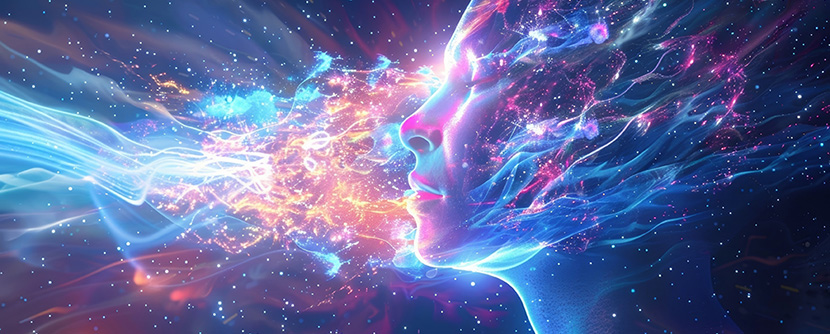Why Our Brain is More Like an Antenna than a Computer
For years, the dominant metaphor for the brain has been that it functions like a computer: a highly complex machine that processes information, stores memories, and executes commands. However, Robert Epstein, a Harvard trained psychologist and former Editor-in-Chief of Psychology Today, challenges this comparison, offering a different analogy. According to Epstein, the brain behaves more like an antenna, receiving and transmitting signals from an external source, rather than being the sole generator of thoughts, memories, and consciousness.
In his article from Discover Magazine, "Your Brain is Not a Computer, It Is a Transducer (Antenna)," Epstein makes the case that while the brain is certainly important in interpreting the world around us, it does not store memories or create consciousness in the way that a computer stores data or runs programs. This shift in perspective opens the door to a more profound understanding of consciousness and the mind.
The Problem with the Brain-Computer Metaphor
The idea that the brain is like a computer has dominated neuroscience and psychology for decades. Computers process inputs, run algorithms, and store data in neat, organized compartments. Similarly, this metaphor assumes that the brain processes sensory input, stores information in specific areas, and retrieves it when necessary. While this analogy has been useful for understanding certain aspects of brain function, Epstein argues that it falls short in several important ways.
For one, unlike a computer, the brain doesn't store information in a clean, organized way. Human memory is fluid and often unreliable. Memories are not static files that we can access without change. Instead, each time we recall a memory, it is reconstructed, often influenced by new information, emotions, and biases. This dynamic and changing nature of memory cannot be fully explained by the computer metaphor.
Moreover, Epstein argues that while computers can handle calculations and logic efficiently, they don’t “experience” the world. Computers have no subjective awareness or consciousness. They don’t feel joy, sorrow, or pain; they just process commands. But humans do experience these emotions and states of being, which is something the brain-computer metaphor doesn’t account for. Consciousness and the subjective experience are aspects that are difficult to explain with a computational model of the brain.
The Brain is an Antenna
So, if the brain is not a computer, what is it? Epstein suggests that it functions more like an antenna—a device that converts one form of energy into another. In this model, the brain doesn’t generate consciousness or even store memories internally. Instead, the brain picks up signals from the environment or possibly a broader, non-local field of consciousness, much like a radio antenna picks up broadcasts. It then translates those signals into thoughts, emotions, and actions.
This is a significant departure from the materialist perspective that views consciousness as a byproduct of brain activity. Epstein’s theory aligns more closely with non-local consciousness models, which propose that consciousness exists outside the brain and that the brain acts as a receiver, rather than a creator, of consciousness. In this framework, our individual thoughts and experiences are not locked inside our heads but are part of a much larger, interconnected system.
Evidence for the Antenna Theory
Epstein’s metaphor aligns with certain phenomena that challenge the brain-computer model. For instance, in cases of near-death experiences (NDEs), people have reported having vivid, detailed experiences while their brain activity was minimal or nonexistent. According to the materialist view, these experiences shouldn’t be possible because the brain is supposedly inactive. However, if the brain is an antenna that receives consciousness rather than generates it, then NDEs make more sense. Consciousness could continue to exist and be experienced even when the brain is not functioning properly.
Another phenomenon that supports this model is the experience of out-of-body experiences (OBEs), where individuals report being aware of things happening around them, even though their bodies are incapacitated. These reports also challenge the notion that consciousness is solely brain-based. If the brain is an antenna or transducer, it might be picking up signals from a larger field of consciousness that allows people to be aware of things outside their physical bodies.
Implications of the Antenna Theory
The idea that the brain is an antenna rather than a computer has profound implications for our understanding of the mind, consciousness, and even reality itself. For one, it challenges the view that everything, including consciousness, can be broken down into material components. If the brain is a receiver of consciousness, then it suggests that consciousness exists beyond the physical realm and could be a fundamental aspect of the universe, much like energy.
This theory also has implications for how we think about memory. In the computer model, memories are stored in the brain like files on a hard drive. But if the brain is an antenna, then memories may not be stored in the brain at all. Instead, they could exist in a broader field of consciousness, and the brain simply tunes into them when needed, much like a radio tunes into different stations.



